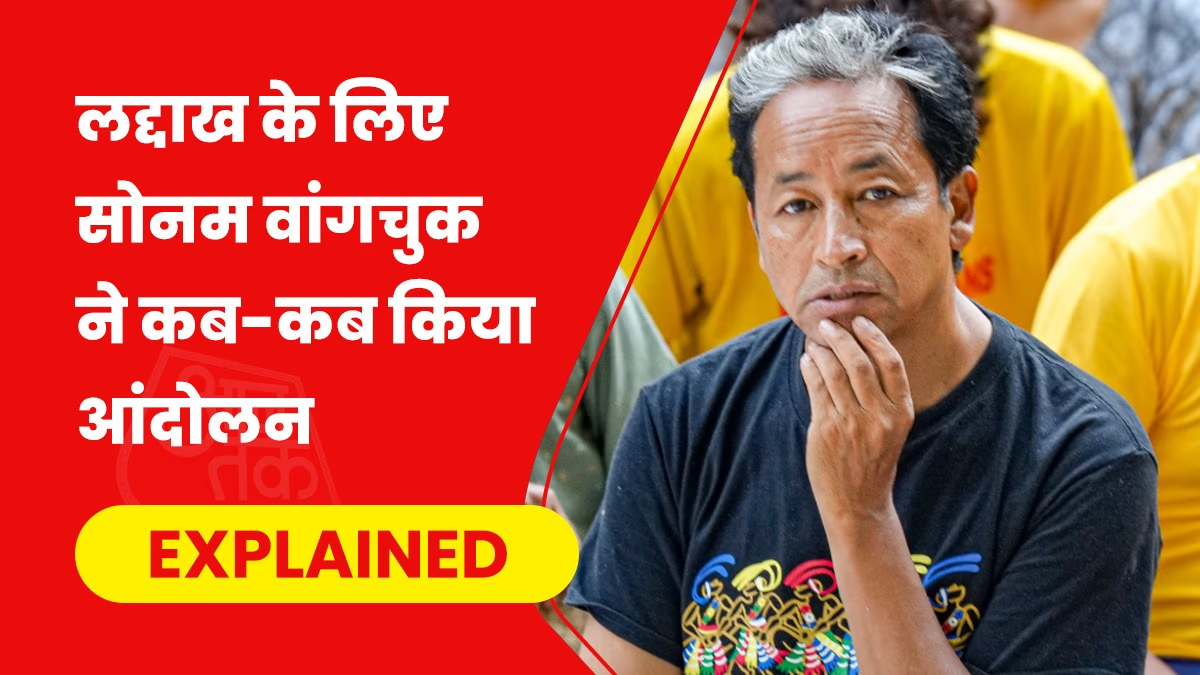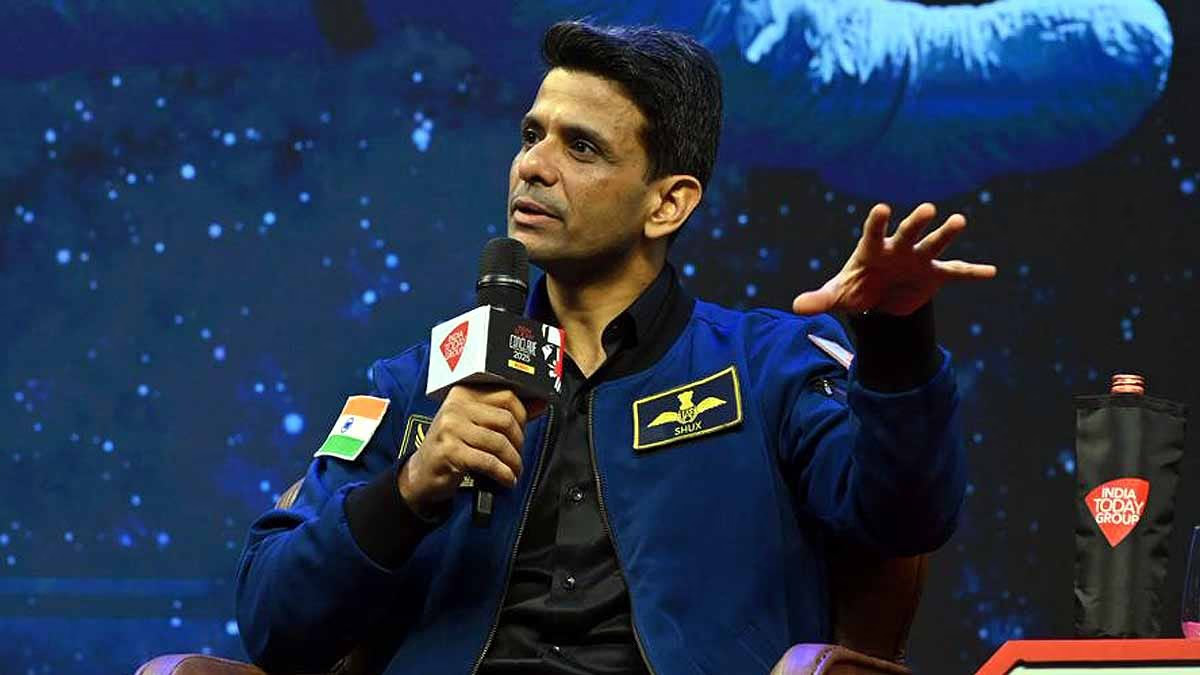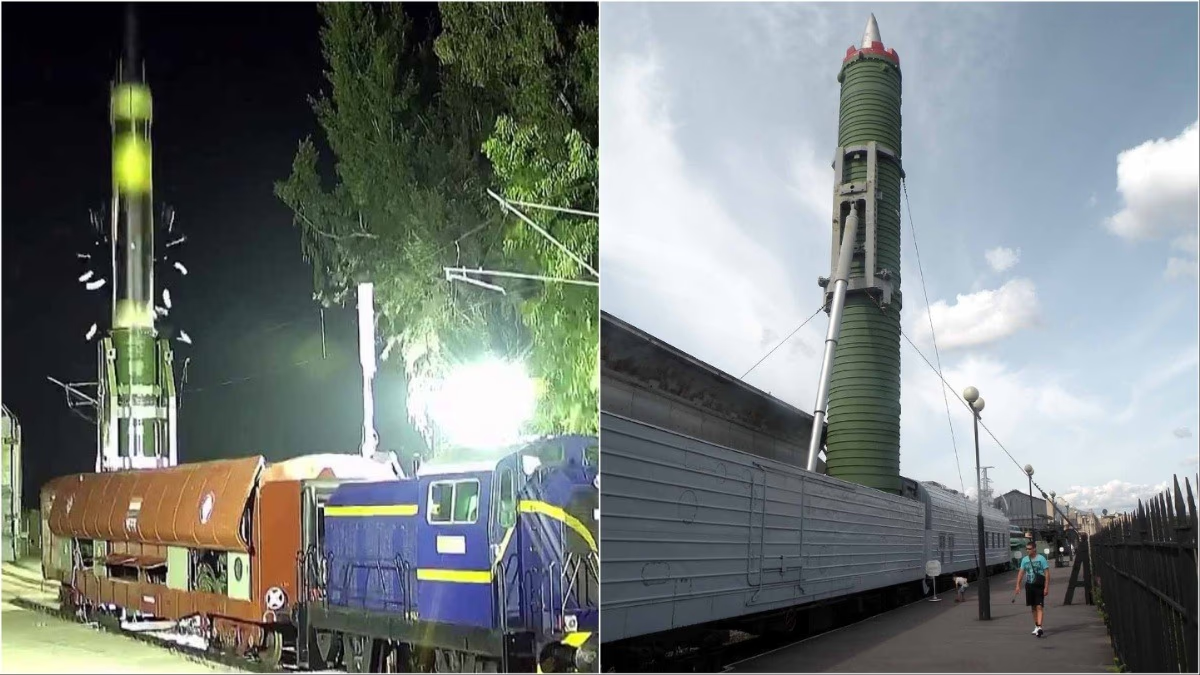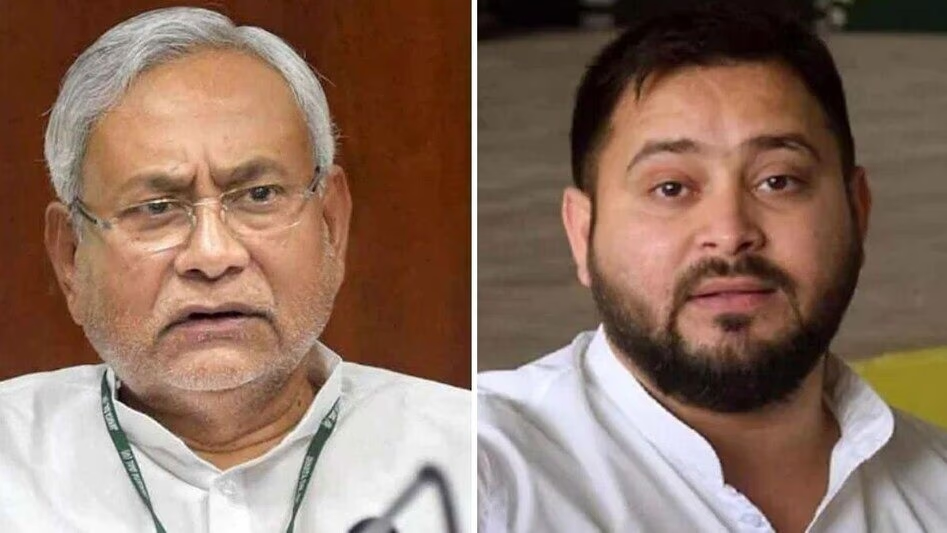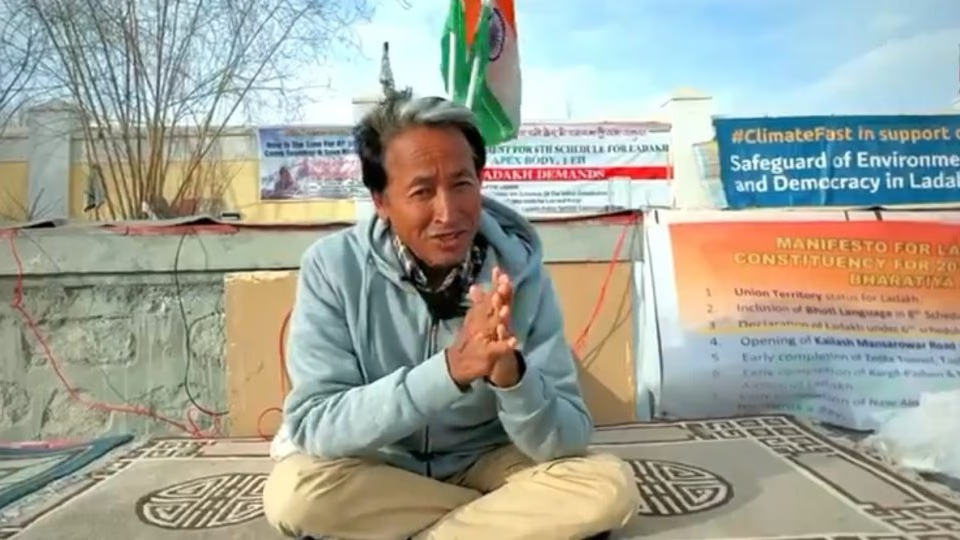In 2019, alongside the removal of Article 370, Jammu & Kashmir was divided, and Ladakh was declared a separate Union Territory. Organizations like the Leh Apex Body and Kargil Democratic Alliance have been continuously engaged in talks with the central government, demanding full statehood for Ladakh. This demand ignited violent protests in Leh on Wednesday, resulting in four deaths and over 70 injuries. The cry for full statehood has persisted since Ladakh was separated from Jammu & Kashmir.
The Face of Ladakh's Struggle: Wangchuk
Renowned environmentalist and Ramon Magsaysay Award winner Sonam Wangchuk has been at the forefront for Ladakh's constitutional and administrative rights. His movement began in 2019 when Ladakh was separated from Jammu & Kashmir. The people of Ladakh saw it as detrimental to their identity, culture, environment, and resources, thus sparking resistance.
Read More: Ladakh Violence: Center Blames Sonam Wangchuk, Cites Gen Z Protests
The movement is spearheaded by the Leh Apex Body and Kargil Democratic Alliance, with Sonam Wangchuk being a prominent figure. Full statehood is their primary demand. Additionally, they seek autonomous status under the Sixth Schedule, the establishment of a separate Public Service Commission for Ladakh, and separate parliamentary seats for Leh and Kargil.
Six Years Since Becoming a Union Territory
Sonam Wangchuk has persistently engaged in fasting, marches, and meetings to achieve full statehood for Ladakh. The foundation of this movement lies in the central government's decision to bifurcate Jammu & Kashmir into two Union Territories six years ago. Initially, Ladakh's separation was welcomed, as the people long desired distinct identity from Jammu & Kashmir. However, as a Union Territory without an assembly, concerns grew over local land and cultural preservation under central dominance.
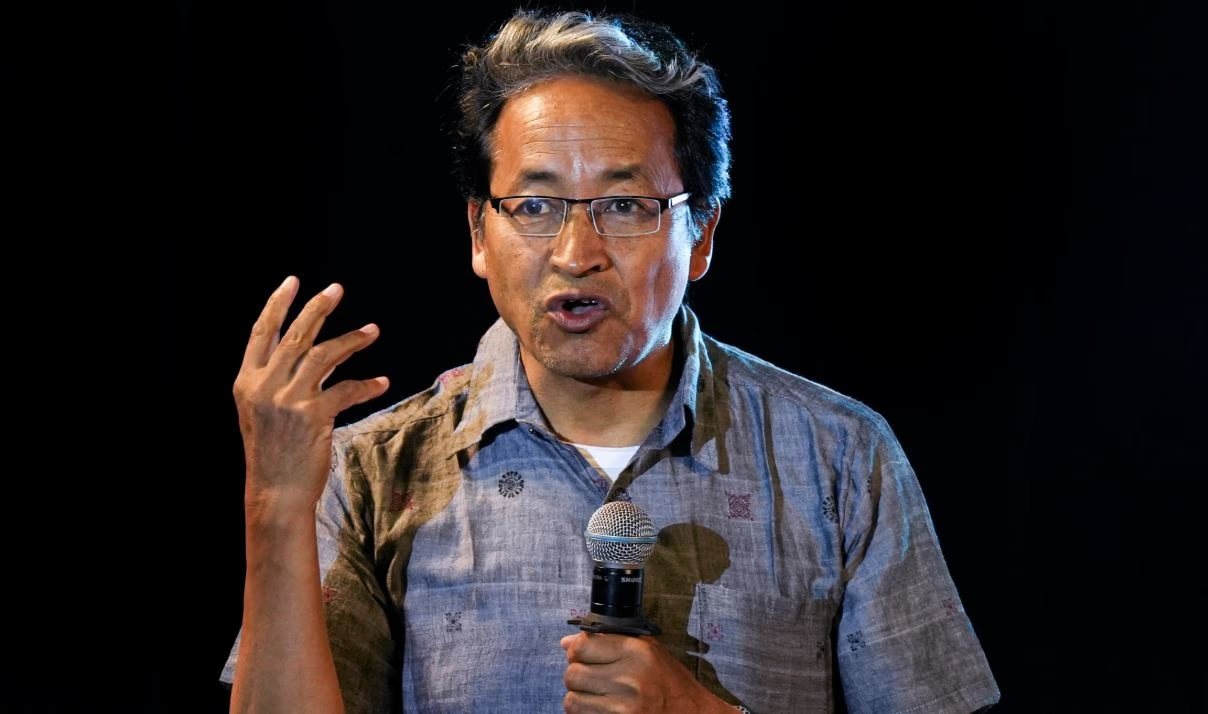
Source: aajtak
The Leh Apex Body and Kargil Democratic Alliance demand that Ladakh be included in the Sixth Schedule, similar to Northeast's autonomous tribal areas. As a representative of Ladakh, Wangchuk stresses the importance of this inclusion to safeguard their natural resources from exploitation by external companies and protect local culture.
Battle for Culture and Resources
A year after becoming a Union Territory, in 2020, the frustration of the local populace grew due to inaction on their demands. Sonam Wangchuk took peaceful measures to voice these concerns, utilizing his background in education and environmentalism to unify the community around preserving their culture.
Read More: Why Did Gen Z-Style Protests Occur on Ladakh's Streets?
In 2022, with mounting pressure on water resources, Wangchuk highlighted the vulnerability of Ladakh's ecological and water resources without constitutional safeguards. Although demonstrations sprouted across the region, a large-scale movement had yet to emerge.
Accusation of House Arrest
In 2023, Wangchuk claimed house arrest, alleging authorities pressured him to sign a bond restricting his statements. He viewed this as an attack on free expression and reaffirmed Ladakh's demands by tagging Prime Minister Narendra Modi on social media. In Leh and Kargil, protests gathered momentum, with Wangchuk reviving the discourse on cultural protection.
In 2024, the movement gained momentum. Wangchuk embarked on a 21-day fast starting March 6, subsisting solely on water and salt, a gesture commencing at Leh's Martyr's Park alongside commiserations of several ex-servicemen. The harsh climate posed a daunting challenge, marking a renewed phase rather than the movement's cessation.
In July 2024, Wangchuk boldly declared a 28-day fast on Independence Day, should the central government ignore discussions with Ladakh's representatives. During Kargil Vijay Diwas, he handed a memorandum to PM Modi reiterating four essential demands.
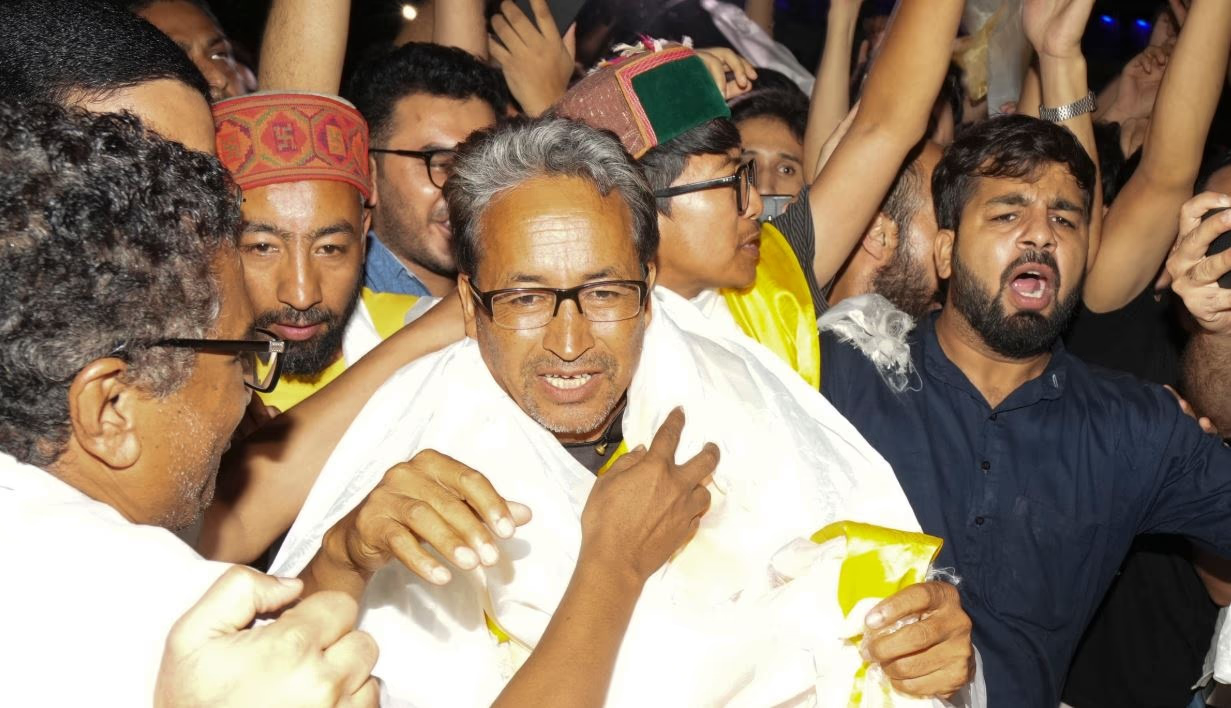
Source: aajtak
From Leh to the Corridors of Delhi
In September 2024, Wangchuk launched a 'Delhi Chalo' march, spanning roughly a thousand kilometers from Leh to Delhi. Engaging 130 participants, the march aimed to draw the central government's attention. On reaching Delhi's Singhu Border by September's end, the police detained the group. Wangchuk labeled the action 'undemocratic,' leading some opposition leaders to voice support.
Upon his October 2024 release, the hunger striker sought permission for a Jantar Mantar fast, a request denied by the police. As an alternative, Wangchuk started an indefinite hunger strike at Delhi's Ladakh Bhawan, backed by organizations like the Students' Federation of India (SFI).
Fast Began in September
Ending a 16-day fast on October 21, 2024, Wangchuk did so on assurances from the Home Ministry for dialogue in December. He deemed the fast a 'peaceful Gandhian protest,' expressing optimism for future leader engagements. By December 2024, he met with farmer leader Jagjit Singh Dallewal at the Khanauri border, displaying solidarity with farmers on their own hunger strike over MSP demands.
Read More: Questions Arise Over Sonam Wangchuk's Visit to Pakistan
On September 10, Wangchuk initiated a 35-day fast in Leh's Martyr's Park, attracting nationwide social organization support. On Wednesday, the protest escalated into violence. Protesters, primarily youths, pelted the Leh BJP office and Hill Council with stones, even setting a CRPF vehicle ablaze. The government blamed Wangchuk for inciting unrest by referencing the 'Arab Spring' and Gen Z protests, accusations he denied.
Ending the Fast with a Call for Peace
Following Wednesday's violence, Wangchuk concluded a 15-day hunger strike, urging youths to maintain peace. He called it a 'tragic day for Ladakh,' emphasizing the fragility of their peaceful five-year journey, which violence threatens to unravel. The government has rescheduled the October 6 meeting to September 25-26, seeking dialogue with LAB and KDA organizations.
After the violence in Leh, BNSS Section 163 was enacted across Ladakh, restricting gatherings of over five individuals. Internet services were slowed to curb propaganda. The government took further steps, raising Scheduled Tribe reservations from 45% to 84% and announcing a one-third reservation for women in councils. Yet, a concrete resolution on demands for full statehood and other major issues remains elusive.
